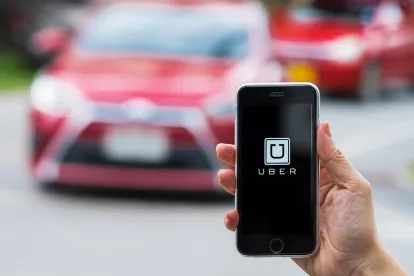The long-running feud between California and the “gig economy” shows no sign of ending soon. On April 28, 2023, the State of California submitted a petition to the Ninth Circuit in Olson v. California, No. 21-55757 (9th Cir.), seeking review or a rehearing before a new panel of judges, after a Ninth Circuit panel in March unanimously held that the plaintiffs (Uber, Postmates, and individual drivers for those companies) had plausibly alleged that AB 5 (the union-backed law forcing gig workers to be employees rather than independent contractors) violated their rights under the Equal Protection Clause of the Constitution.
The ruling follows another recent defeat for the State of California regarding whether rideshare drivers should be classified as employees or independent contractors. On March 13, 2023 in Castellanos v. State of Cal., the California Court of Appeal upheld the constitutionality of Proposition 22. Proposition 22, which was overwhelmingly approved by California voters (including Uber and Lyft drivers) in November 2020, exempts app-based taxi and food delivery companies from the onerous requirements of AB 5.
AB 5 codified the so-called “ABC test,” a worker classification test which makes it much harder for employers to classify workers as independent contractors. Since the bill’s enactment in 2018, the law has faced a number of challenges in court, and Proskauer has closely tracked how this ongoing saga has unfolded.
In March 2023 a Ninth Circuit panel determined that there was enough evidence to plausibly allege that AB 5 unfairly targeted companies like Uber and Postmates. The panel noted that what differentiated Olson from a similar case a year ago, in which the Ninth Circuit dismissed allegations that AB 5 unfairly targeted journalists, was that in this case there were allegations of animus from the legislator who sponsored AB 5, former California State Assemblywoman Lorena Gonzalez.
The panel pointed to tweets Gonzalez posted specifically criticizing Uber and Lyft, and an opinion piece in the Washington Post that Gonzalez wrote concerning alleged misclassification of workers in the gig economy. The Court found that Gonzalez “repeatedly disparaged” the plaintiffs in this case, and thus there were plausible allegations of animus, and that a “legislative desire to harm a politically unpopular group cannot constitute a legitimate governmental interest.” The panel also found that the “piecemeal” nature of AB 5, adding exceptions for certain industries and not others, was evidence that Gonzalez and the California legislature potentially singled out rideshare and delivery companies.
It bears mentioning that Gonzalez was the CEO and Secretary-Treasurer of the San Diego and Imperial Counties Labor Council, AFL-CIO, before her stint in the California Legislature. After sponsoring and working to pass numerous pieces of legislation that directly benefited the unions, Gonzalez resigned her legislative position last year and returned to the AFL-CIO as Chief Officer of the California Labor Federation. During the pandemic, while still a member of the California Assembly, Gonzalez infamously tweeted, “F*ck Elon Musk” – to which Musk responded, “Message received!” not long before moving Tesla’s headquarters from California to Austin, Texas.





 />i
/>i

